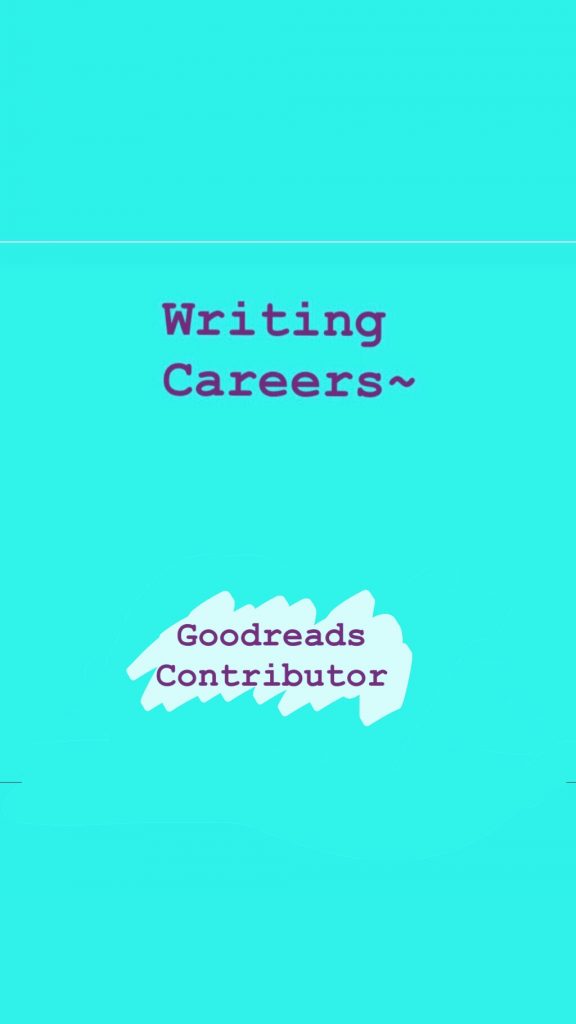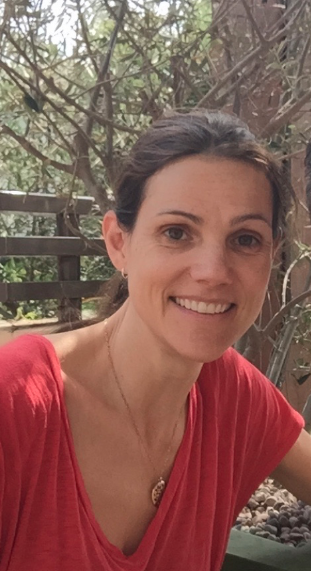
Do you love to read, and can’t wait to tell everyone about the latest book you’ve picked up? Are you forever curious about the author behind the book, and wonder why they were inspired to write the story, or create the characters they did? Do you have a gift for interviewing people? If so, contributing to an online platform or book-related publication may be a great fit for you. Scroll down to read what it’s like to be a Goodreads Contributor from a professional in the field, Catherine Elsworth. One thing about Catherine she doesn’t mention below? She is incredibly easy to talk to, and can make even the most introverted person feel comfortable opening up. Thank you for sharing your expertise, Catherine!
How did you get started as a Goodreads Contributor?
I first started writing for Goodreads about six years ago. I’ve worked as a journalist since my early twenties, first on a local newspaper in the UK, where I’m from, and then on a national newspaper in London. In 2004, I moved to the US to become the paper’s Los Angeles correspondent and I’ve been here ever since. The correspondent job involved lots of travel and reporting on news stories from across the western half of the US and beyond. There was also a lot of feature writing and interviewing. After I had my kids I stopped working as a foreign correspondent and started to freelance, writing articles for a variety of publications both in the UK and the US. Through contacts I was introduced to one of the editors at Goodreads and she asked if I’d like to interview an author for them.
I was really excited as reading and books are a real passion for me and I love talking to authors about their work. The first writer I interviewed for Goodreads was Anita Shreve about her 2013 book Stella Bain. Since then I’ve interviewed Jennifer Egan, Maria Semple, Toni Morrison, Tara Westover, Lisa Genova, Isabel Allende, Pierce Brown, and many other writers.
What is a typical day like?
It’s easier to describe a typical project rather than a day as my days vary so much. Once I’m assigned an interview, I’ll liaise with the author’s publicity team to get an advance copy of the book – the interviews I do are pretty much always linked to a new book that’s about to come out. They will send me a galley of the book, as it’s called, and I will read that and make some notes about the kinds of questions I plan to ask during the interview. I’ll also research the author more generally, reading previous interviews they may have done, reading reviews of any other books they’ve written, and, if I’ve time, reading those books. I’ll draw up a list of questions and plan a structure for the interview so we can cover everything I need in the allotted time. I’ll try not to include too many questions about things the author has said several times in the past, unless it’s really pertinent to the book. I always try to get as much new information as I can, although this isn’t too hard when authors are talking about a new book.
A date will be set for the interview and then I’ll talk to the author on that day. I take shorthand notes but also record the interview in case I miss anything. The interviews are great fun as I find it fascinating listening to authors speak about their creative process, idiosyncrasies, inspirations etc. Afterwards, I’ll transcribe the interview and then go through and figure out what I want to include in the final piece and what I can leave out. I then write an introduction to the interview that gives information about the author and their new book. When I finish editing the interview, I’ll send it over to my editor at Goodreads and wait for feedback.
What training, education or preparation would help prepare someone for your job?
My background in journalism is obviously a huge help to me but I don’t think you’d absolutely have to that journalism training/experience to do this job. A passion for books and authors and a honed interviewing technique are probably the most important aspects.
What skills do you think help you do your job well?
As I mentioned before a good interviewing technique is important, and part of that is being a good listener. Part of it is also thinking up questions for the author. Research skills are helpful, although I feel like much of that is second nature to people now because of the easy access to online information.
What type of person would be a good fit to be a Contributor?
A keen reader and book lover who is interested in authors and how and why they write. Someone who is curious and loves to write themselves.
What are the down sides of your job?
It’s hard to think of any down sides as I love doing the interviews. I guess the only one might more of a general one about freelancing as a way of life. It can be challenging to get your workload right – that feast or famine aspect of freelancing – so you have enough work but not so much that you feel overwhelmed.
What are the up sides of your job?
Numerous! Reading books I might not have read otherwise, getting to talk to authors, and writing about writers and books – all things I love to do. Also, talking to my colleagues at Goodreads.
What resources, professional journals, organizations or social media sites keep you informed about your industry?
Goodreads, obviously, is a huge resource for information about books and authors and it’s important for me to read what an author might have written/said on Goodreads either in an answer to a reader’s question or in a previous interview. I’ll also read interviews in other publications the author may have done. Authors often use Twitter and communicate a lot there so sometimes reading an author’s Twitter feed can be a good source of information as well.
Any words of advice for people interested in this job?
Read books, write your own reviews of books, read interviews with authors. If you write for a student publication, maybe try to interview an author for your newspaper or magazine? It can help if they have a local connection to where you live. Perhaps research which authors come from your home town/city and see if they have any upcoming books that they might want to talk about. If you’re interested in a career in journalism, talk to your school career counselor about options such as degree courses and internships. Maybe even contact your local newspaper (if you have one) and see if you can go in for a visit? My first job was as a night sub-editor’s runner on the Eastern Daily Press in Norwich, England, in 1987. I made coffee and delivered mail and organized reports sent in by news agencies such as the Associated Press. Things are obviously different today with everything being electronic but there may still be some openings for someone interested in learning about the profession. Good luck!

Catherine Elsworth started working as a trainee journalist at her local newspaper the Eastern Daily Press in Norwich, England, after university. After completing her three-year training with the paper she moved to London to freelance for the national papers. She got a job as a news reporter with The Sunday Telegraph and later worked for its sister paper The Daily Telegraph, becoming assistant news editor for two years. In 2004 she moved to Los Angeles to be The Daily Telegraph’s Los Angeles Correspondent, a post she held for five years, covering news and features from across the US. She was also based briefly in New York. In 2009 she left to freelance and worked for a number of publications in the UK and US. From 2013 she has been working for Goodreads as a contributor, conducting interviews with authors for the site’s monthly newsletters.